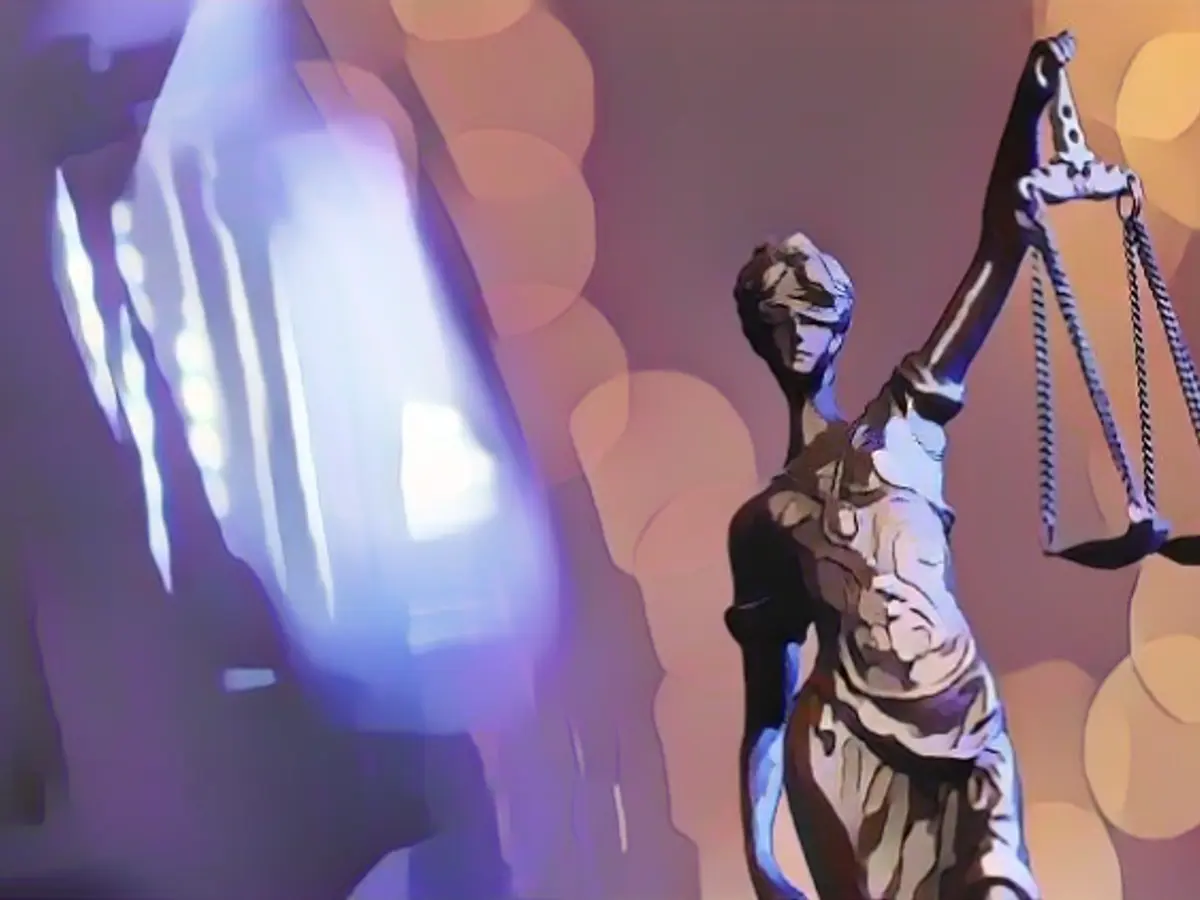Karlsruhe ruling could shatter traffic light plans
During the coronavirus pandemic, the German government is taking on masses of debt - what's left over is being reallocated to climate protection projects. The Federal Constitutional Court will now decide whether this was legal. If it gives the thumbs down, it would be a political earthquake in Berlin. Because the money is already firmly earmarked.
This Wednesday, the traffic light coalition is looking eagerly to Karlsruhe. A ruling by the Federal Constitutional Court is pending there that has explosive force for the government made up of the SPD, Greens and FDP. If Germany's highest court rules against a supplementary budget for 2021, the dispute within the government over the future budget is likely to become much more heated - at a time when 41% of German citizens are already in favor of new elections and the Greens and FDP in particular are repeatedly clashing within the government.
At the end of 2021, when the traffic light government was formed, 60 billion euros in unused loans from the coronavirus era were reallocated and moved to the Climate and Transformation Fund (KTF) as a cushion, where they can be used over several years - especially for projects that are particularly important to the Greens. This shifting maneuver was at the heart of the 2021 supplementary budget. The CDU/CSU considers the procedure to be unconstitutional and filed a lawsuit against it. The Federal Audit Office also criticized it.
Debt brake circumvented?
Experts are talking about a landmark ruling because it concerns the future of the debt brake and, indirectly, the government's ability to act. The debt brake enshrined in the Basic Law had been suspended for the corona loans, but now the funds are to be used for completely different purposes, namely the transformation towards climate neutrality. In its reprimand, for example, the Court of Audit argued that an acute crisis was needed to suspend the debt brake. However, climate protection is a long-term task that would have to be financed from regular budget funds.
According to analysts at Berenberg Bank, there is a "significant probability" that the judges will rule against the government. In such a case, the traffic light would have to reorganize its spending in the regular budget over the next few years, but could at least be given time for the transition, according to Berenberg expert Salomon Fiedler. A shift to the state development bank KfW, for example, would also be conceivable.
However, the court rejected the CDU/CSU parliamentary group's urgent application against the supplementary budget. At the end of 2022, the Second Senate nevertheless explained in 41 pages that there may well be constitutional concerns.
Union: KTF became a shadow budget
As the plaintiff, the CDU/CSU hopes that the court will strengthen the debt brake: "A brake must also have a braking effect," said Mathias Middelberg, Vice Chair of the CDU/CSU parliamentary group in the Bundestag. "If the traffic light were to be allowed to continue with this practice, any finance minister could in future accumulate unlimited debt in a crisis year to deal with a particular crisis, but then use the money later for completely different purposes and for an unlimited period of time in other years. The debt brake would thus be de facto ineffective."
The Greens, on the other hand, warn against questioning agreed investments from the climate fund. The funds are "absolutely needed", said co-party leader Ricarda Lang on Monday. "Depending on the verdict, we will have to discuss in the coalition how to secure this in the future." For the period after 2025 - i.e. after the current term of office of the traffic light government - the debt brake enshrined in the Basic Law must be discussed. "Because it cannot be a long-term solution to always work via special funds."
Expenditure of 57.6 billion euros is already planned for the coming year. The largest items are 18.9 billion for the renovation and new construction of buildings and 12.6 billion for the faster expansion of renewable energies. The pot will also be used to finance subsidies for the establishment of semiconductor factories. Revenue from European CO2 pricing will flow into the KTF every year. These funds are to be paid out to citizens in the form of climate money. However, the traffic light coalition has not yet implemented this plan. Finance Minister Christian Lindner of the FDP points to the technical difficulty of transferring money directly to every citizen.
- Jens Spahn, a critic of the reallocation of coronavirus-era loans to the Climate and Transformation Fund (KTF), agrees with the Federal Audit Office's criticism of the procedure as potentially unconstitutional.
- If the Federal Constitutional Court rules against the supplementary budget, Ricarda Lang, co-leader of the Greens, will need to discuss with her coalition partners how to secure the agreed investments from the climate fund for the future.
- The Union parliamentary group, led by Mathias Middelberg, argues that if the court allows the traffic light government to continue the practice of accumulating debt in a crisis year for climate protection projects and then using the money for an unlimited period of time in other years, the debt brake would become ineffective.
Source: www.ntv.de








